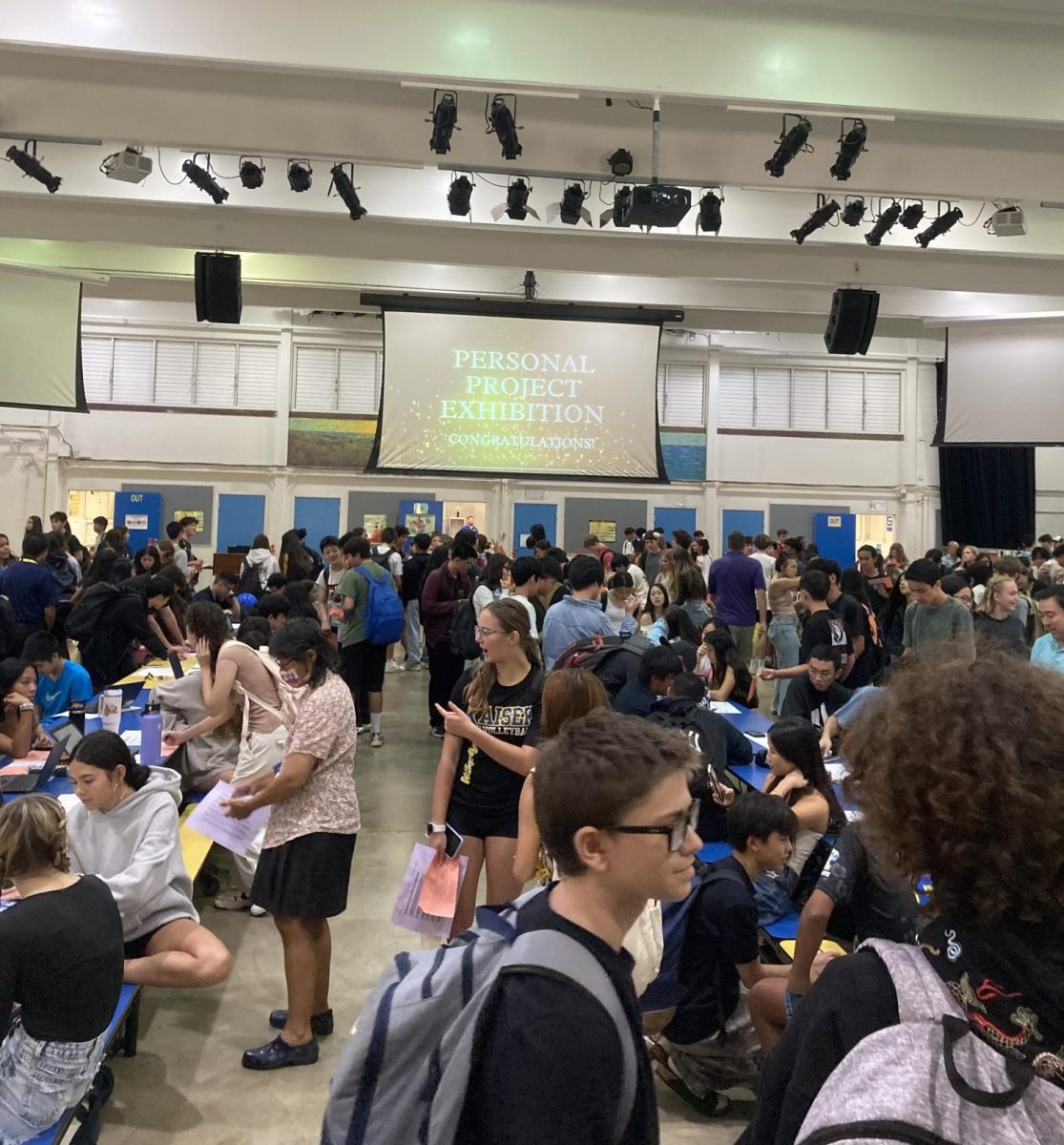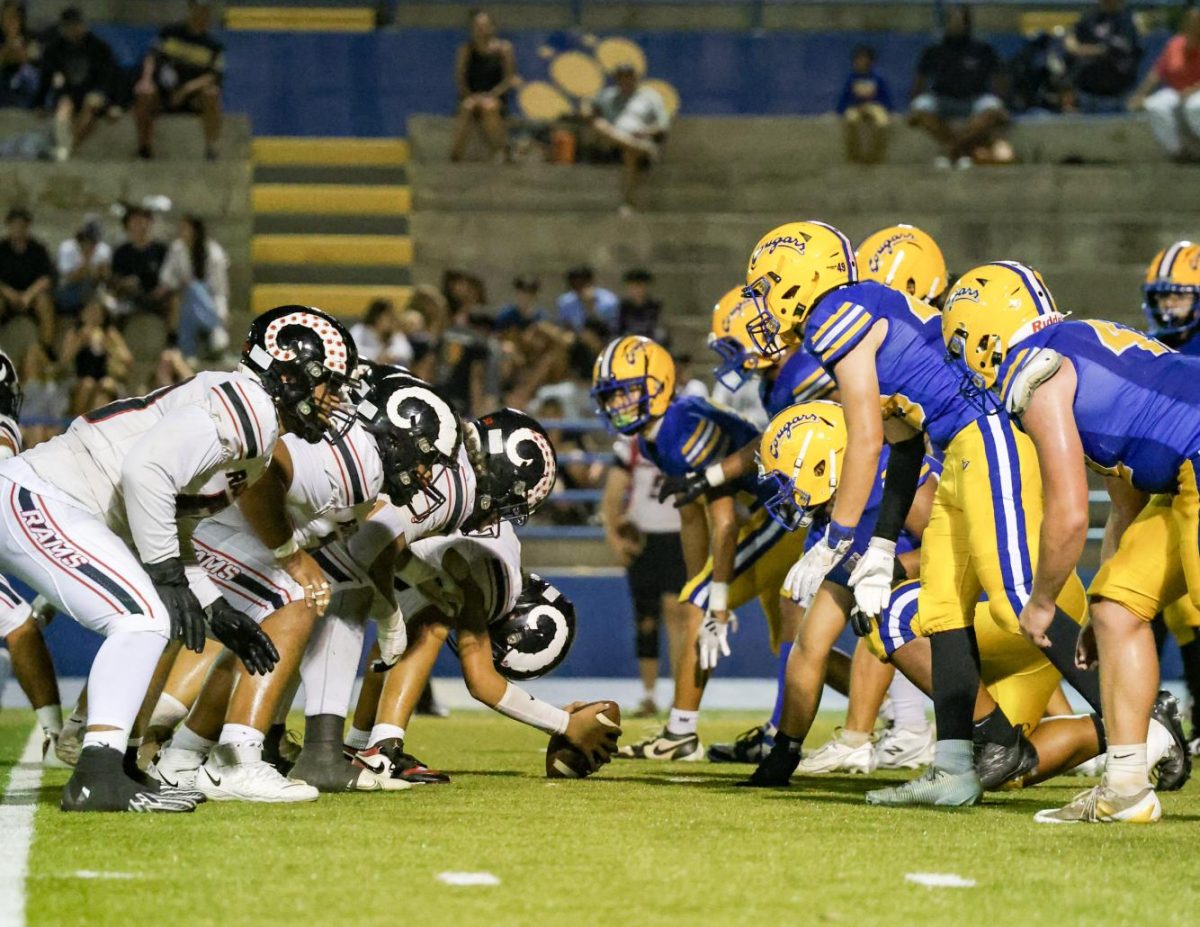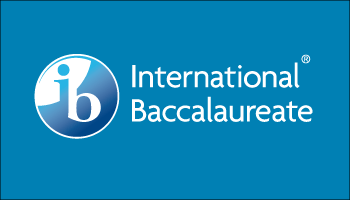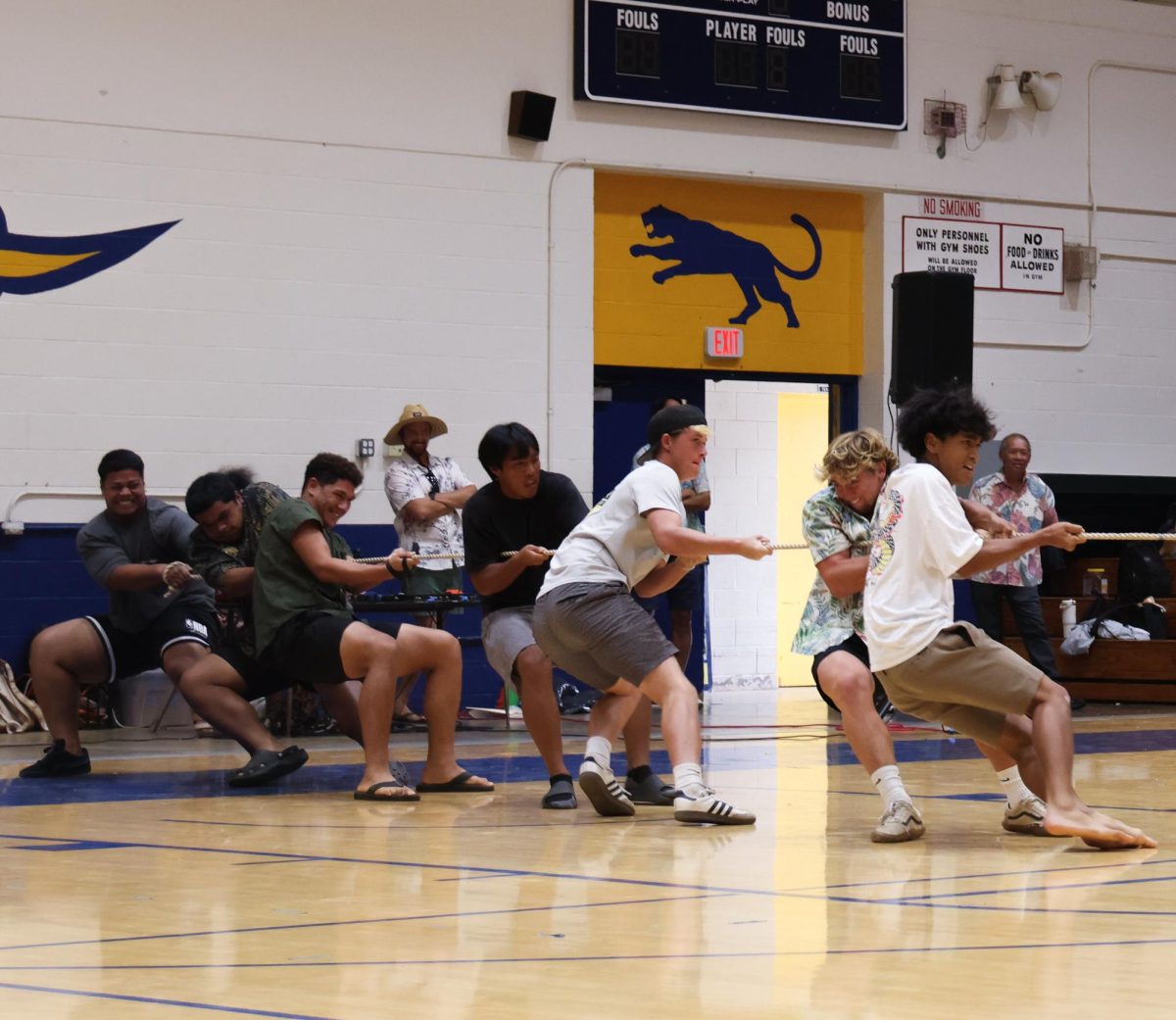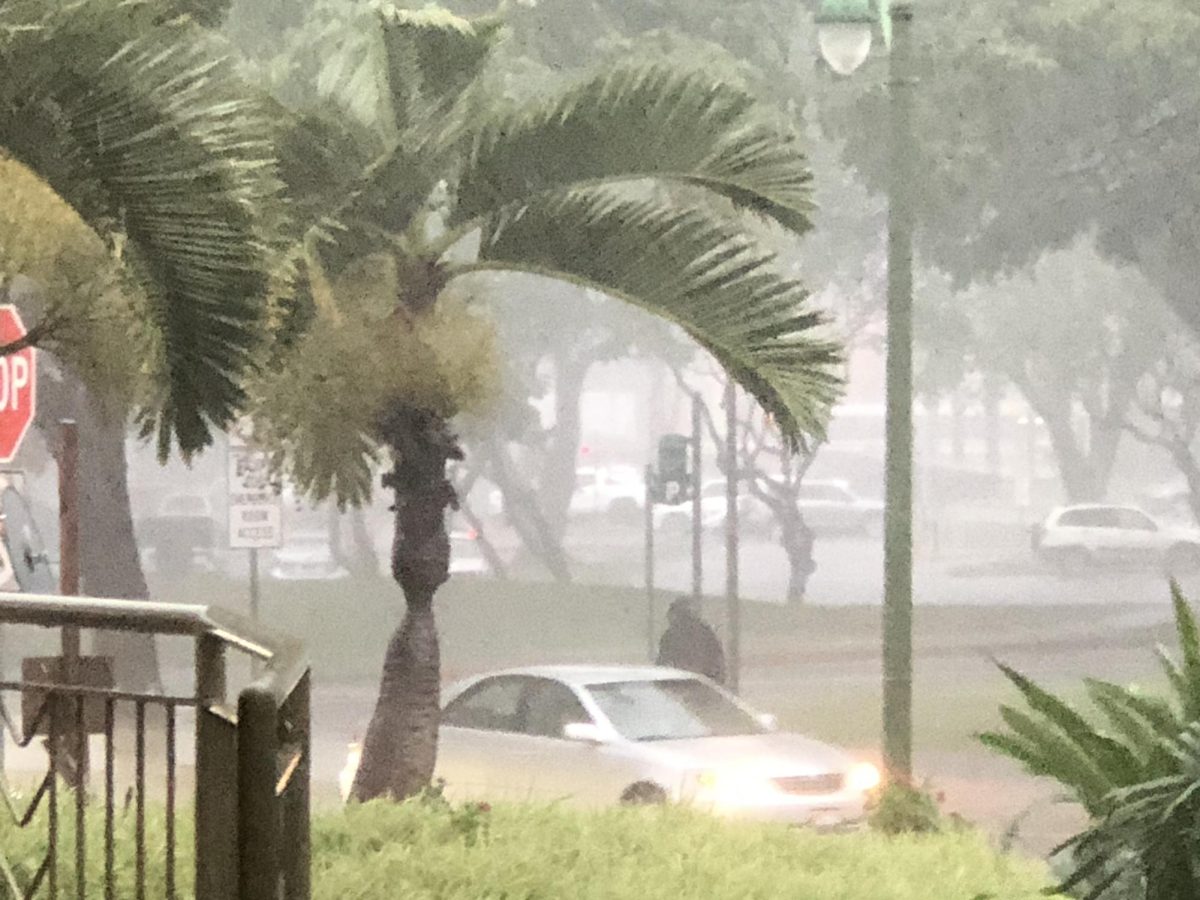In an increasingly interconnected world, the International Baccalaureate (IB) program is preparing students not just for college at Kaiser High School, but for global citizenship. By emphasizing learning within global contexts, the IB program fosters critical thinking and a broader understanding of the world. Kaiser High School offers two distinct pathways for its students: the Diploma Programme (DP) and the Career Pathways (CP) programme. Both are two-year programs that begin in a student’s junior year. For Kaiser students, this means, increased college acceptance rates, development of valuable skills, opportunities for international experiences. Whether a student chooses the academically rigorous DP or the career-focused CP, the IB program at Kaiser aims to empower them to become informed, engaged, and compassionate global citizens.
A minimum 3.0 GPA is required for admission into either program. The DP program is designed to prepare students for college and requires students to take six IB classes in addition to other core components. The CP program focuses on career readiness and does not require students to take all six IB courses. CP students are required to only take two IB courses, which leaves more wiggle room for electives.
Both programs emphasize academics and college preparation, but the CP programme also caters to students with specific career interests. Both aim to equip students with real-world skills and problem-solving abilities essential for success in any career.

Some of the benefits of the programmes are getting college credits and being prepared for challenges. The IB program helps students get into a good college, and since it is an international program, the college might even be somewhere outside the United States. When asked if IB was preparing him for life after high school Ellis Roberts said, “Definitely.”
One advantage of the CP program is its flexibility. Students can combine CP courses with AP classes or other electives, as it requires fewer IB courses than the DP programme. However, the DP programme offers a potential advantage for students seeking admission to highly selective colleges and universities.
Some benefits that the students have pointed out were life skills that they had learned through being in the program. Kiley Freitas, a senior in the DP program said “IB is definitely preparing me for life after high school. Especially college, but also just general life, because IB pushes your limits and teaches you to work through your struggles.”
“I learned how to stay focused during class,” said Roberts. “If you don’t pay attention for a bit, you will lose track of what’s going on.” The IB program, he added, equips students with valuable skills that extend beyond high school.
Yet, a lot of people do not take any of the IB courses, because some students might be looking at more specific colleges that might not care as much about IB credits. That is why it is important to research detailedly on colleges and their requirements. Another reason why students do not take IB courses is that they just do not wish to do it. For some people, it is a waste of their teenage years. Another reason said by a student “ I think that the biggest difficulty with the program, though, is that a lot of the teachers don’t take students’ results seriously, and don’t run the classes as efficiently as possible. This means that there is a struggle to understand requirements and do as well as possible on exams.” The prevalence of only one elective also acts as a reason why many students don’t take IB.
Some usual reasons students are not sure about taking the IB Program is because of the stress students experience, especially during internal assessment. The assessment overwhelms students and very often they complain about not having enough time to finish it.
Internal assessment is the project that IB students are given at the end of their second year in the IB Program. Students are not always given enough time to finish it, usually, it is a week or two given to students to finish the project. The reason for that is that teachers have deadlines for posting all grades, and sometimes they do not have enough time either.
When the project is done and the teacher grades the project, the scores are sent to the IB coordinators and they put the grades into the system. The system asks for two students with good scores, two students with middle grades, and two students with low grades. The students are chosen randomly.
Then the projects of those students are sent to different countries, and they are getting graded there. When the results are sent back, the IB coordinators compare those grades with the grades students received from their teachers. That way they check if the teacher checks students’ work fairly. Depending on the grade students receive from different countries, the grade for the project can change, either rise or get lower.
The question a lot of students ask before or even after getting into the IB program is, is it worth taking? The answer to this question varies on the student, since to some it turned out to be useful knowledge, while for others it was a waste of time. The college-level classes are not the only thing IB students are facing. The IB DP program asks students to do community services and camps. IB CP students instead of community services get internships.
The program is not only about academics, it tries to get students to be creative, athletic, and more. So they want students to do some kind of sport, and any activity related to artistic knowledge. During summer, students are often taken to different countries, to explore the new culture and connect to it. One example of one of the trips was Wade

The IB program’s demands extend beyond students. Teachers also undergo rigorous training to stay current with the program’s evolving curriculum and assessment methods. Every five years, IB teachers attend conferences for professional development. These conferences provide training on teaching IB courses, including grading rubrics, program rules, and updates to the curriculum. Because the IB program’s rules and guidelines are subject to change, these conferences are essential for teachers to remain informed and effective.
Teaching IB also offers rewards for educators. Candace Sandstrom, an English, News Writing, and IB PPS teacher, finds value in preparing students for the challenges of college and adulthood. She dedicates herself to this work, ensuring her students are well-equipped for the future.
In Mr. Nakamura’s opinion, the benefits that teachers get from teaching IB, is like students, creating close relationships with each other. It helps with getting better connections with teachers, and also getting better communication with students since teachers have them for two years.
If getting deeper into details about why it would be worth or not taking the IB program. At least with the DP program, the class schedule is pretty much ready and does not need much thinking about which period to put each class. This limits students with elective classes to only one, and even with that there is not a big guarantee of students getting that elective because of the schedule. So instead of elective class, there is a study hall period. Another thing to think about is having the same people in your classes for the last two years of high school. The classes might not be as big either. There was a case of not having enough kids in Biology class, so they had to mix that class with Physics.
School counselor Stephanie Hill shared an opinion on the IB Program, saying that she would recommend the Program. The IB Program, in her opinion, prepares students for college, giving them an idea of what to expect in college, especially the first year of college when there are a lot of new, unfamiliar for students assignments, that a lot of them fail. A big percentage of students in their first year of college fail their classes. But taking IB classes helps to try out the higher level courses and be familiar with college work. Taking the IB Program can benefit not only students’ higher chance of getting to college, but also paying less for it.
Mr. Nakamura has a similar opinion on the statement that IB prepares students for college. His main point is that IB teaches students time management, challenges, and overall college-level knowledge, and those skills help a lot in college. “Some students might come back and say that college is easier than IB,” stated Mr. Nakamura. He admitted the content in college might differ from what IB teaches, but the workload is the same, and students will already know how to handle it.
One thing Mrs. Hill appreciates about the IB Program is the philosophy it teaches students. It lets students think

outside the box, think of different perspectives and basic approaches and ways to solve a problem. How to relate it to culture, questioning things in a diplomatic way, and getting students deeper in beliefs. She finds it useful for IB DP students to have a lot of the same classes, “because when students have the same classes they create a kind of family”.
Yet, Mrs. Hill does agree that the IB Program does not fit everyone. Each student has their own path to follow. Some prefer AP courses over IB, just because they have a wider course choice. There can be multiple reasons for students choosing either of the programme or maybe some should not take either of the programme at all, because the regular classes they have might be already challenging for them. The main reason is the college choice, depending on what college students choose and what that college recognizes, students should choose what to take.
Mr. Nakamura shared an opinion that freshmen and sophomores students who want to join the IB Programme, should talk not only to teachers about the course and the program, but it is better for them to talk to IB students. Juniors and seniors who have already experienced the programme, so it is useful to listen to different opinions, get all the pros and cons, and decide if it is something a student wants to do.
The IB program gives students a distinct edge in college preparation, alongside valuable life skills and a strong sense of community. While its demanding nature means it may not be right for every student, the rewards are often substantial for those who undertake the challenge.


